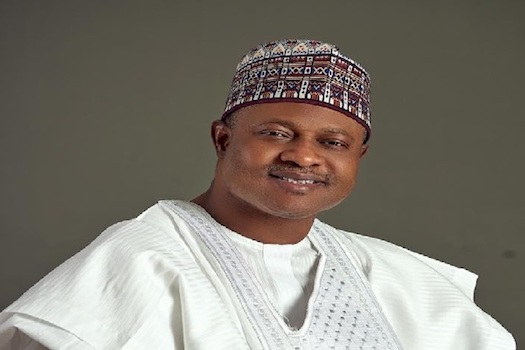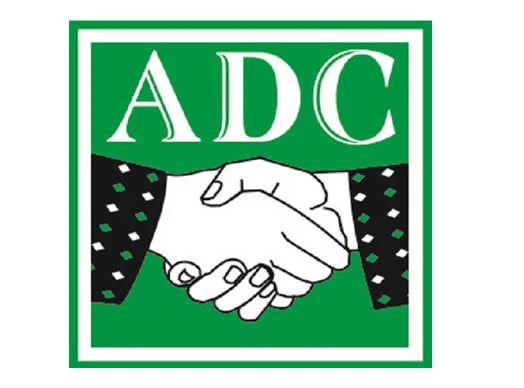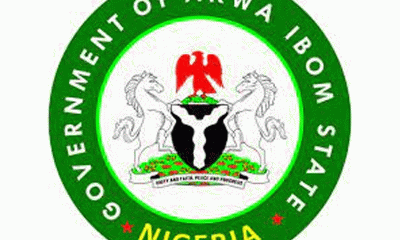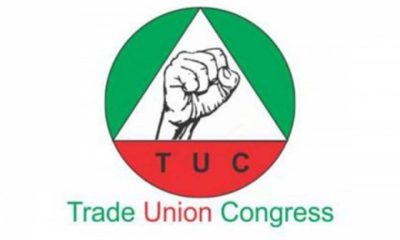NEWS
Kaduna First to Domesticate Nigeria Startup Act – Findings

….Domesticate Nigeria Startup Act
Findings have shown that out of the 12 states in Nigeria that indicated interest to implement the Nigeria Startup Act, Kaduna state has taken the lead to actualize the provision.
Its nine months since Nigeria’s former President, Muhammadu Buhari assented to the country’s startup act, and only 32% of states in the country have indicated interest to domesticate the Act.
In October 2022, a year after the drafting and consultations for the Nigerian Startup Act (NSA) commenced, Nigeria’s President, Muhammadu Buhari signed it into law to drive growth for the country’s tech and startup ecosystem.
Read Also: Centre seeks partnership in protecting critical infrastructure, assets
In a 2022 report by TechHive and Ikigai, the Nigeria Startup Act ranked best among the other four African startup legislations—Senegal, Tunisia, Ethiopia and Kenya—with relation to their scope, label and governance, incentives and enforcement.
However, analysts say that the implementation of the Act in the country has been slow since the presidential assent in October 2022.
According to Tracy Okoro, the State Adoption Lead at the Nigeria Startup Act secretariat, “I think that the whole country has been fully focused on the elections.”
Recent findings however showed that out of the 12 states that indicated interest, Kaduna State had gone ahead with actual domestication via “a law to make provisions foror the development of Tech-Enabled Startups in Kaduna state and Other related matters, 2023”.
The Kaduna State law has crested 3 Startups Grants and Investment Fund (the “Fund”) domiciled with the Kaduna Enterprise Development Agency.
The fund shall be managed by the Fund Manager to be appointed by the Council, subject to the approval of Governor Uba Sani.
Based on proposals submitted and approved by the Council in the preceding year, the Fund shall be seeded and replenished annually from the following funds to ensure its effective operation.
Read Also: Speech President Muhammadu Buhari While Signing into Law, 2022 Appropriation Bill
The Fund shall be applied towards providing listed Startups who meet the criteria set out by the Council on the recommendation of the Fund Manager in consultation with the Grant and Investment Board with funding to be used for the purposes, if any, set out by the Council.
Notwithstanding the purposes set out by the Council, the Fund shall provide early-stage finance for Startups to undertake product viability research to ascertain the technical feasibility, relevance and suitability for local and global market upon the criteria set by the Council.
The Fund may also provide relief to technology laboratories, accelerators, incubators and hubs who qualify for investment based on rules developed by the Secretariat and approved by Council.
A minimum of two hundred and fifty million naira (N250,000,000.00) would be appropriated annually by the state government for the Startups Grant and Investment Fund for Startups as defined within this Law. This amount would be reviewed every three years with a view to mitigating inflation and other impacting adjustments.
NEWS
NAICOM constitutes 11-member recapitalization committee

By Tony Obiechina Abuja
The National Insurance Commission (NAICOM) has constituted a 2025 Recapitalization Committee, following President Bola Ahmed Tinubu’s assent to the Nigeria Insurance Industry Reform Act (NIIRA) 2025.
Chaired by Mrs.
Oluwatoyin Charles, Director of Supervision, the Committee’s primary responsibility is to oversee the implementation of the recapitalization program.This includes ensuring compliance with revised capital requirements and promoting transparency and integrity in sourcing and verifying capital inflows.
The Commissioner for Insurance, Mr. Olusegun Ayo Omosehin, emphasized the critical role of recapitalization in stabilizing the industry and contributing to Nigeria’s $1 trillion economy vision during the Committee’s inauguration in Abuja on Tuesday
He urged the 11-member Committee to approach their task with professionalism, diligence, and commitment to the common interest, assuring them of necessary support.
Committee’s terms of reference include to create a detailed plan for the Commission and the insurance industry; develop guidelines and circulars on recapitalization; recommend the composition of Minimum Capital Requirements, and incentives and Concession Identify incentives and concessions that may be obtained from other regulatory authorities.
The Committee will submit monthly progress reports to Management and provide quarterly updates to the Governing Board and stakeholders.
NAICOM is confident that the Committee will successfully deliver on its mandate, shaping the future of Nigeria’s insurance sector.
“The Committee’s success is vital to the industry’s stability and growth, and NAICOM looks forward to collaborating with all stakeholders to achieve this objective.
“With the NIIRA 2025, NAICOM aims to position the insurance industry for greater transparency, innovation, and global competitiveness, aligning with the Federal Government’s vision of achieving a $1 trillion economy”, the Commission added.
| ReplyReply allForwardAdd reaction |
NEWS
Again, ADC Tells EFCC to Stop Witch-hunting, Media Trial of Opposition Leaders

By Johnson Eyiangho, Abuja
Again, the African Democratic Congress (ADC) has come hard on the Economic and Financial Crimes Commission (EFCC), asking the commission to stop both the media trial and witch-hunting of opposition leaders.
The ADC accused EFCC of being used by the government to harass and intimidate opposition party leaders.
On Monday the commission detained one of the leaders of the coalition and former Governor of Sokoto State, Aminu Tambuwal, and subsequently invited Imo State Government officials to “urgently” provide information on the seven-month tenure of former Imo State Governor, Emeka Ihedioha.
With this, the party said that it has become crystal clear that the EFCC is out on a hatchet job — “a choreographed media trial targeted at bringing coalition leaders to disrepute.
”n a statement by its National Publicity Secretary, Mallam Bolaji Abdullahi, on Tuesday the ADC questioned why the EFCC had suddenly found “urgent” reason to investigate David Mark 10 years after leaving the Senate Presidency, Ihedioha more than five years after his brief tenure as governor, and Tambuwal two years after leaving office as Sokoto governor.
It said the pattern of ignoring APC stalwarts with fresher and well-documented cases, while targeting opposition figures with stale allegations, is proof of selective justice and an assault on political freedom.
Abdullahi said the detention of one of the Coalition leaders, former Sokoto State Governor, Senator Aminu Tambuwal, marked the start of the crackdown intended to intimidate key leaders of the opposition and discredit them through media trials.
“As shown in an EFCC correspondence currently circulating online, the Commission has now embarked on the investigation of another coalition chieftain, former Imo Governor, Emeka Ihedioha, with an “urgent” request to the officials to provide information related specifically to his brief seven months in office.
“Rt. Hon. Emeka Ihedioha, the former Deputy Speaker of the House of Representatives, served as Governor of Imo State for just seven months, from May 29, 2019, until the Supreme Court removed him on January 14, 2020 — a full 5 years and 7 months ago. We therefore wonder what makes investigating him suddenly “urgent” now.
“Most notably, the EFCC has now surreptitiously started excavating all the files from the ADC Chairman, Senator David Mark’s tenure as President of the Nigerian Senate. Let us remind Nigerians that our Party Chairman, Senator Mark, served as the Senate President for eight years, from June 6, 2007, to June 6, 2015 — making him the longest-serving Senate President in our history. He left office 10 years and two months ago. Three Senate Presidents after, the EFCC suddenly remembered that he was a Senate President,” the statement said.
Abdullahi said the ADC believed in adherence to the rule of law and due process, like all Nigerians, but questioned the curious timing, selective targets, and political motivations that now seem to define the EFCC’s actions.
According to him, a fight against corruption that begins and ends with the opposition is not justice — it is persecution. We have no doubts that this is witch-hunting; it is the APC government weaponising anti-corruption to do its political battle.
He said that having failed to stop the coalition, the jittery ruling party’s next move was to discredit its leaders by getting the EFCC to accuse them of looting the entire treasuries, noting that there were calculated media trials, which start and end with the accusation, the scandal, and the consequent lowering of public estimation. “It matters little whether there is a basis for these accusations — the game is the circus show.”
He said: *The questions write themselves: why now? Why these men? Why these timelines? If corruption truly has no statute of limitation, why are the EFCC’s files on APC’s own “big men,” many with fresher, documented cases, gathering dust in forgotten drawers? Why does the EFCC only discover “urgent” anti-corruption zeal when an opposition leader becomes a political threat?
“The truth is simple. These are not fresh investigations — they are political manoeuvres, cynical attempts to intimidate and weaken credible opposition voices ahead of the 2027 elections. The APC’s EFCC does not touch its own while they are in office or when they defect to the ruling party.
“Once a former governor crosses over, their files vanish like morning dew. Since Ifeanyi Okowa joined the APC, have Nigerians heard a single whisper from the EFCC about his cases? Yet opposition leaders are hounded with allegations from decades past without a shred of new evidence.”
He said what the EFCC is doing on behalf of the APC government is anti-democracy, adding that every time the EFCC is deployed as a political bulldog, it tramples on public trust and shreds the credibility of our justice system, reminding the APC that state institutions did not belong to it, but to Nigerians.
“We call on citizens to speak up, to resist, and to demand that the EFCC stop this witch-hunting in the interest of our democracy. Today, it is David Mark, Ihedioha, and Tambuwal. Tomorrow, it could be anyone who dares to hold this government accountable.”
| ReplyReply allForwardAdd reaction |
NEWS
FCTA Champions Livestock Development to Boost Food Security

By Laide Akinboade, Abuja
The Federal Capital Territory Administration has emphasized the strategic importance of strengthening livestock production, aimed at boosting food security, and promoting sustainable agricultural development across the nation.
FCT Minister of State, Dr.
Mariya Mahmoud made this known at the 2025 National Pasture Planting Day held at the Kawu Grazing Reserve in Bwari Area Council, Abuja.She explained that pasture planting is more than a farming activity, stressing that it serves as a key intervention to ensure the year-round availability of quality feed for livestock, reduce overgrazing and land degradation, and advance the transition to modern, settled livestock systems.
According to the minister, these efforts would not only increase productivity but also help prevent conflicts, foster peaceful coexistence, and protect the environment.
Describing the Kawu Grazing Reserve as a strategic agricultural asset within the Federal Capital Territory, Mahmoud noted that with enhanced pasture management, improved water infrastructure, and expanded veterinary services, the reserve has the potential to serve as a model for other states nationwide.
This, she said, would enhance milk and meat production, create employment opportunities, and support harmonious relations among rural communities.
The minister commended the Federal Ministry of Livestock Development for leading the initiative and acknowledged the dedication of farmers, herders, and development partners who continue to innovate within the sector.
Mahmoud also reaffirmed the FCT Administration’s commitment to supporting pasture development projects that secure the future of Nigeria’s livestock industry.
She described the planting event as a symbol of a shared vision for abundance, peace, and prosperity.
According to her, “The National Pasture Planting Day event underscores the President Bola Ahmed Tinubu’s proactive approach to overcoming challenges in the livestock sector, particularly the consistent availability of quality animal feed, positioning Nigeria toward a more modern, productive, and profitable livestock value chain.”
Also speaking, Minister of Livestock Development Alhaji Idi Mukhtar Maiha, noted that the event marks not just planting of seeds in the soil, but the sowing of a vision, the vision of renewed hope agenda for resuscitating great reserves, sustainable livestock development, environmental stewardship, peaceful pastoral practices and economic empowerment of millions of Nigerians who depend on livestock for their livelihoods.
Maiha revealed that the ministry is investing in release and registration of pasture varieties into the national seed system, noting that eight varieties have been released for the first time in 48 years.
The Minister assured that the present administration is fully committed to implementing the National Livestock Growth Association Strategy, which has been approved by National Economic Council and other policy frameworks that promote peace, productivity and prosperity in livestock.
He called for collaboration and cooperation within the community and between the community and the government to make the grazing reserves work.
| ReplyReply allForwardAdd reaction |

















